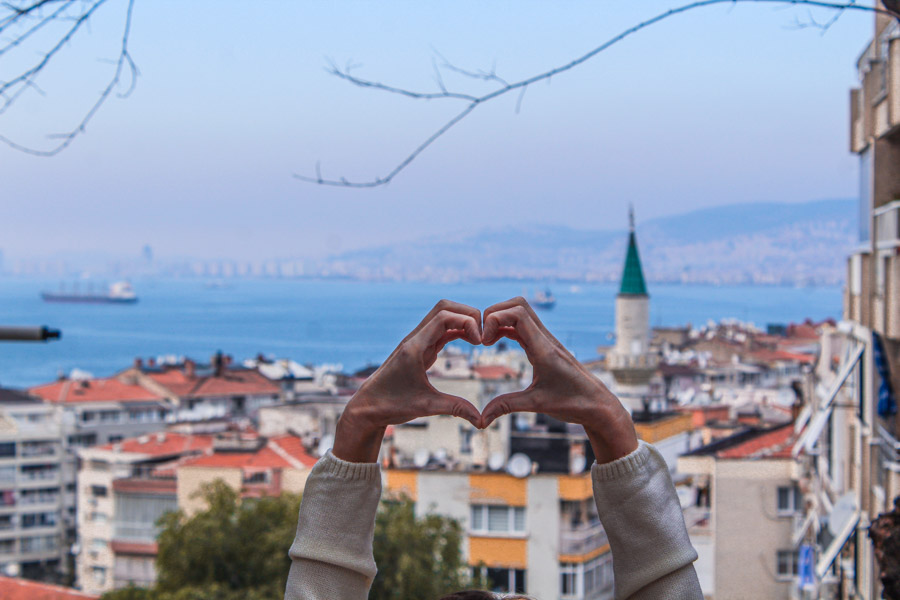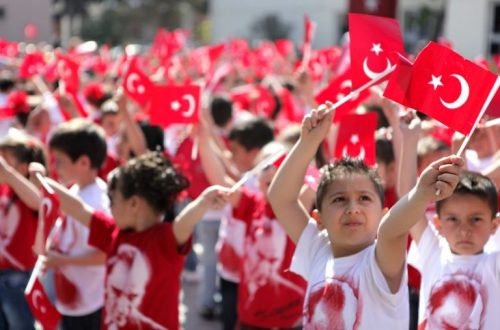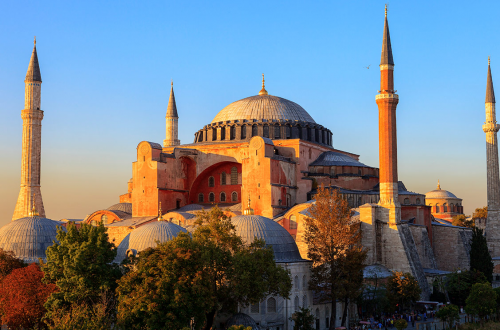
Living in Turkey, Pros and Cons
There are lot of advantages on living in Turkey. The country divides its territory between two continents, with very little in Europe, while the rest is in Asia. Living in Turkey is a good choice. It is a very beautiful country, rich in history, culture and traditions and was one of the centres of world civilisation.
When you think of a city that embraces east and west, among the first that comes to mind is Istanbul. It is the most developed city in Turkey, and one of the most developed in the world, with many job opportunities and recreational activities.
Although it is an incredibly beautiful city with a strategic geopolitical position, it is far too crowded. Living in Turkey, particularly in Istanbul means living in chaos, every day! Traffic congestion, crime rates and expensive housing are just some of Istanbul’s most pressing problems. Traffic congestion, for example, might be considered a minor problem, but if you have to spend two hours a day going to work and two hours returning home, you’d quickly change your mind.
There are tons of beautiful cities in the country if you are about living in Turkey. Obviously, compared to Istanbul, they have fewer job opportunities, lower wages, fewer places to visit and less developed infrastructure. However, life is much more relaxed in cities like Antalya, Izmir, Muğla, etc.
When you live in a larger city, whatever you want to do, you can find it: theatre performances, any kind of sport, trekking, fishing, horseback riding, nightlife, museums, festivals, etc. Whereas, in the inland there is almost nothing to offer, and it seems as if time has stood still.
State schools in Turkey are free. State university fees are also very low. The quality of education has decreased significantly in recent years but there are still many good schools that maintain a high standard of teaching.
Health care is also almost free, if we consider the prices of the similar services in some European countries as well as the USA. The state covers all medical expenses in the event of an emergency. Other medical expenses are covered in variable degrees, by percentages (up to 100%, but generally about 80%).
There are “family doctors” who can be consulted without an appointment for basic health issues. You can address your problems with this type of doctor and usually receive free treatment.
Public transport is not bad. It is free for those 65 and older. They have been known to storm buses and subways at all hours of the day.
Turkey is an extremely large country and different regions offer different climates. In the northern part, it’s mostly rainy year-round. The difference in temperature is not excessive, and in summer it’s mostly around 22-24 ° C.
In the Mediterranean and Aegean regions, it gets very hot during the summer (on average 30 ° – 40 ° C, and it hardly ever rains. Winters are generally warm (8-10 ° C, and temperatures rarely drop below 0 ° C). Spring and autumn are generally extraordinarily beautiful with a typically mild, Mediterranean climate.
In the Anatolian region, summer temperatures are generally around 20 ° C, while winters regularly drop below 0 ° C.
Turkish cuisine offers much more than just the well-known dish, kebabs. Each region of Turkey has its own particular specialties. Thanks to the many different cultures and races which were mixed during the days of the Ottoman Empire, Turkish cuisine also borrowed dishes from Europe, Asia and Africa. With the addition of spices and other Turkish elements, we combined everything and created unique and characteristic dishes. Turkish tea is extremely important to everyone who lives here; in fact, most people drink at least 3 cups of it a day.
Turks love strangers and respect other people’s cultures. The Turkish people are, by nature generous, good-humoured and kind. Only at the wheel do the Turks turn into bloodthirsty beasts.
Turks are very friendly and tend to act more civilized and cultured than other people living in some Western countries. One of the common traits of all the Turkish people is their world-famous hospitality.
It’s easy to make friends with people. You will soon be friends with your neighbours and local shopkeepers in your neighbourhood. Neighbourhoods in Turkey are small communities where everyone takes care of each other and helps each other however they can.
Culturally, Turkey is divided in half. Fifty percent (50%) of the population lives a completely different lifestyle than the other 50%. It is really hard to believe that people’s culture and lifestyle can differ so much in a single country.
Turkey is one of the most diverse countries on the planet, in terms of world views, political views, religion, socioeconomic differences, and even people’s physical characteristics.
In extremely conservative cities such as Yozgat, Konya and Sivas, as well as virtually any city in Anatolia or the eastern region, older people tend to stick to ancient traditions and it is impossible to change them or even question their beliefs. The father decides the future of the children: what the children’s profession will be, who will be his or her husband / wife, how they should dress, etc., (especially for the women).
By contrast, cities with a more liberal, open-minded and modern vision, are comparable to those of any western city. People don’t care what you do, what you wear, who you marry, what your religion is as long as you don’t bother anyone.
Integrating with the local population could be more difficult due to the language barrier, but learning the language could simplify things a lot.
Turkish is a very rich language, but learning it can be challenging. Many Turks in more developed cities know English, and some also know other languages (German, French, Italian, Spanish, Russian) but don’t expect the owner of a mom-and-pop style shop below the house to know more than a few basic words of English. So, if you decide to live in Turkey for a long time, it might be useful to start learning Turkish because at some point you will definitely need it.
Life in Turkey is still cheap compared to many developed countries. For example, food, utilities, clothing, are priced lower than in European cities. Anything other than electronics and cars (especially imported products) are still affordable, except for some highly taxed products such as alcohol, gasoline, etc.
There’s also a considerable difference between the cost of living in large cities, (especially housing prices), and that of small urban communities.
The economic situation in Turkey right now is not currently the best and the future also seems quite uncertain. The minimum wage is very low (around $ 300 per month) and many people work for the minimum wage.
Ten years ago, Turks lived very comfortably. Middle-class people also enjoyed a wealthy lifestyle. Today, the situation has worsened and no improvement is visible on the horizon. Turkey is currently experiencing runaway inflation.
Expats in Turkey mainly work in managerial positions, at local or multinational companies which are usually based in Istanbul.
Foreigners can find the greatest job opportunities in the IT sector and in the field of tourism.
In this regard, I have presented this bulletin board that contains job offers all over the world.
Living in Turkey, Pros:
– People are genuine, friendly and warm
– Low cost of living
– Generally good climate
– Great food
Living in Turkey, Cons:
– Privacy and private life are non-existent in Turkey. Difficult life for reserved people
– Dictatorship with clearly totalitarian inclinations
– Economy in decline and inflation on the rise
– Corruption
Turkey is geographically and culturally a bridge linking Europe to the Middle East and Asia. The Turkish people are more “traditional” than the peoples of Western Europe, but they still manage to be a secular and democratic state. So, we can say that Turks generally live like Europeans do, with a subtle hint of the Middle East.
They generally dress in European styles and work in similar rhythms and methods like any other Western country. Despite being a largely Muslim country, it is legal to drink alcohol and pork is not prohibited.
Even though the country has no religion established in its constitution, Turks are mainly Muslims. As you will see, there are many mosques across the country. Turkish men still prefer virgin women who can cook and stay at home raising children. .
– If you have a good income, life will generally be better in Istanbul than it would be in an any other Western European country or the United States.
– If, on the other hand, you have a low income and live in an underdeveloped and extremely conservative city, or worse yet, if you are trying to live in Istanbul on an insufficient salary, life in Turkey will be extremely hard and depressing. Under these conditions, you are better off living in another European country.
– If you live in Turkey and receive your salary in $ dollars or € euros, life will be very smooth, indeed.
If you have a good job that guarantees you a good income and you are willing to learn Turkish, life will be easier and you will be really happy in Turkey.
Otherwise, you’d be wise moving to any other developed country where you’ll be better off.




